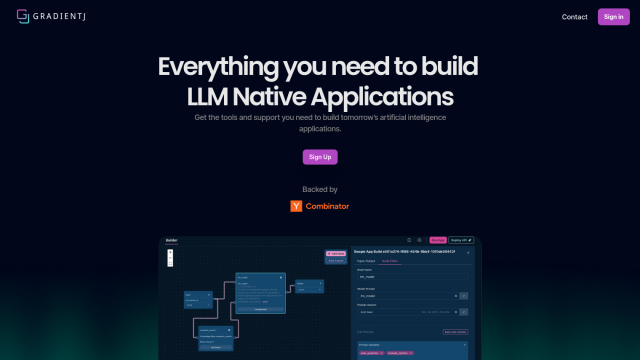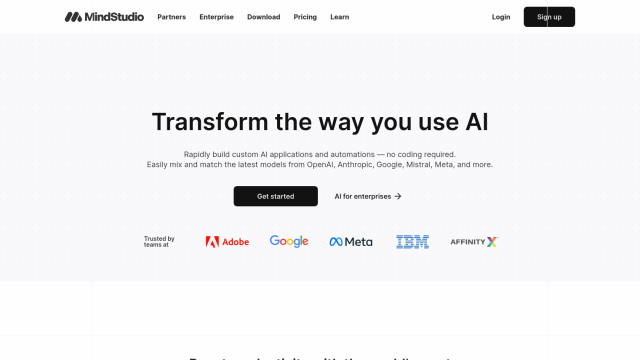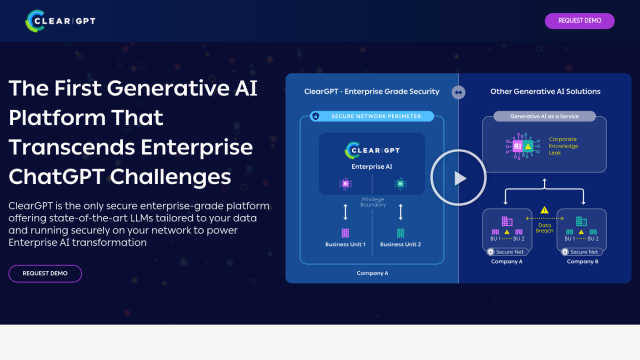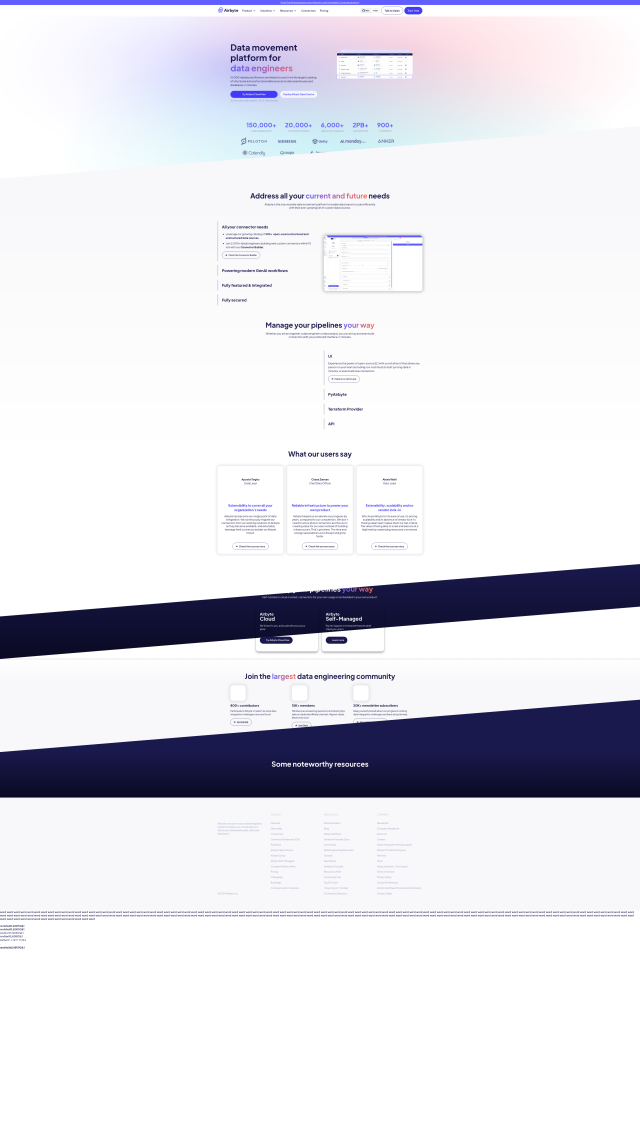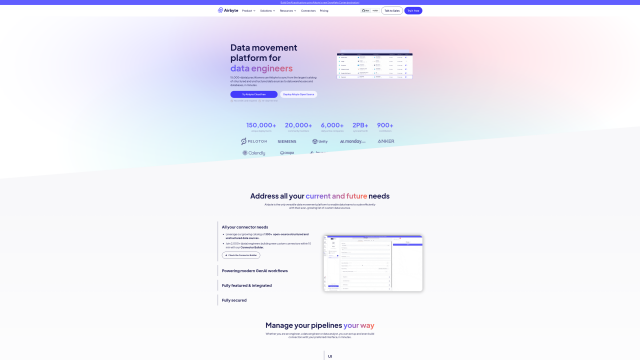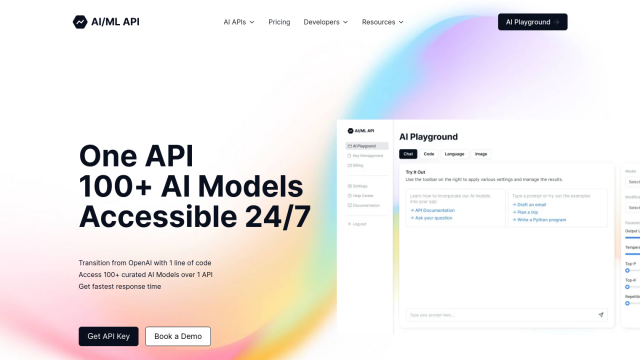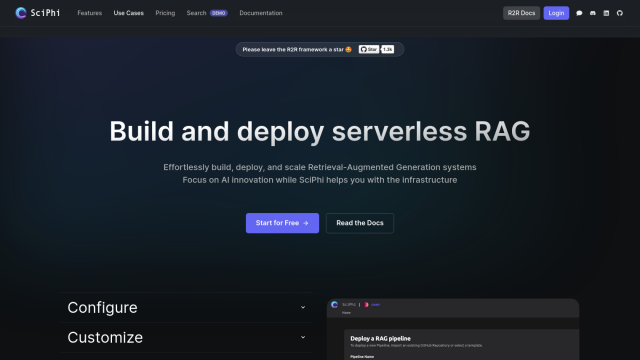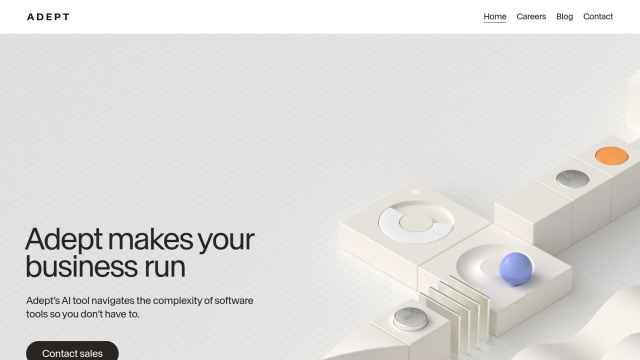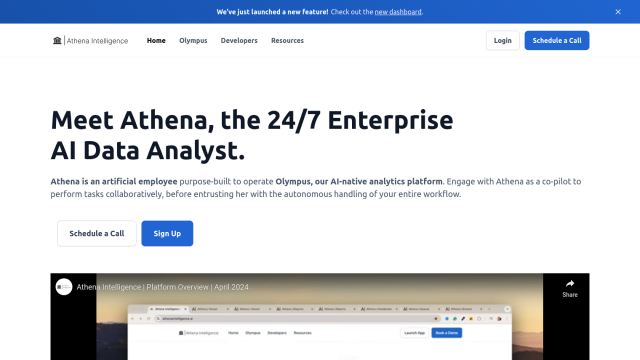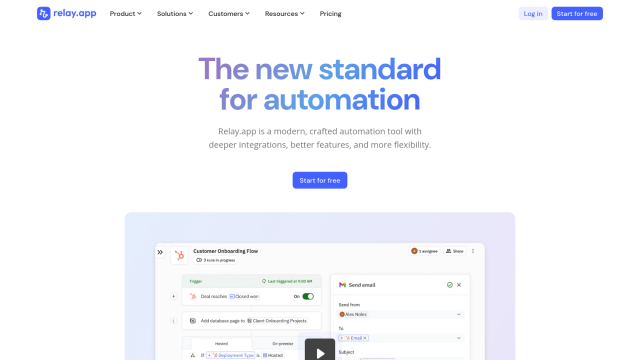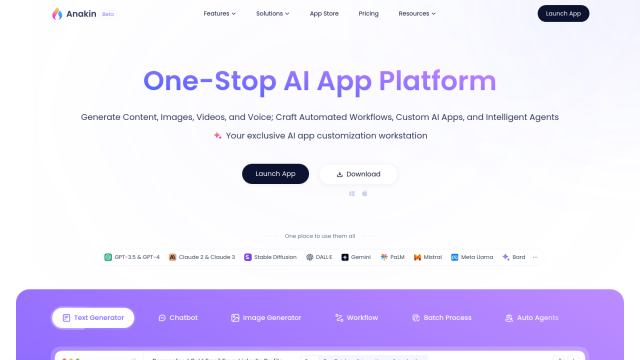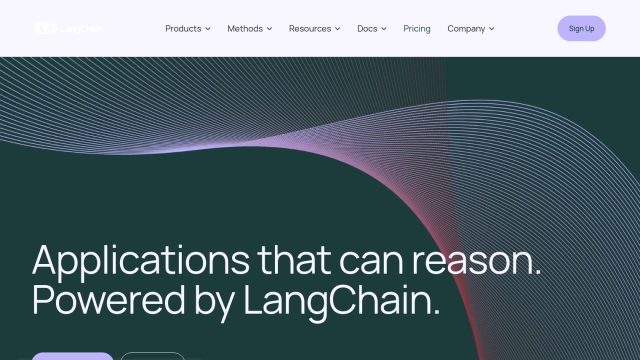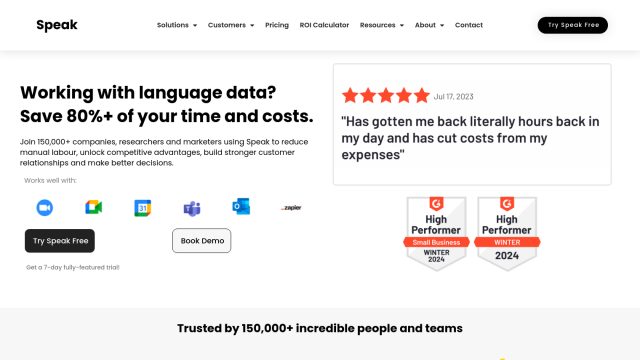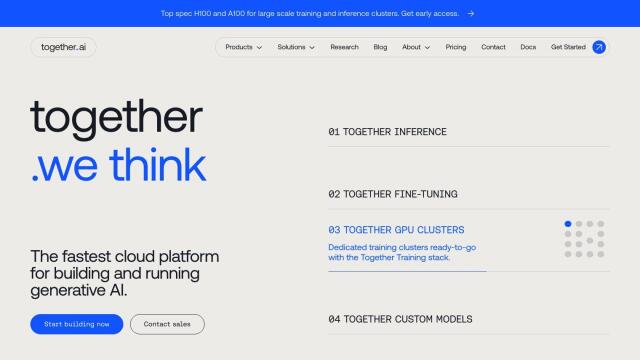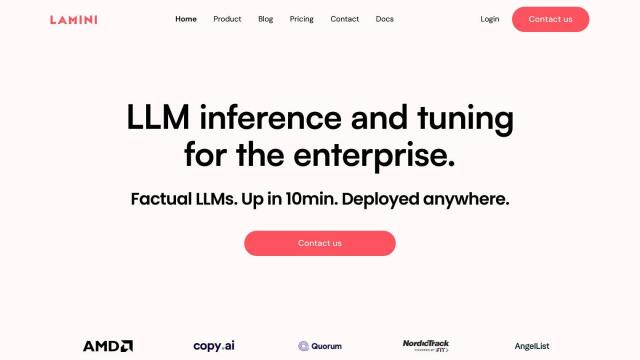

Abacus.AI
If you're looking for a GradientJ alternative, Abacus.AI is a good option. The platform lets developers create and run sophisticated AI agents and systems using generative AI and neural networks. It comes with modules like ChatLLM for creating full-stack conversational interfaces and AI Agents for automating multistep workflows. It also has predictive and analytical abilities, so it can be used for a wide range of business applications like customer service and sales forecasting.


ThirdAI
Another option is ThirdAI. The platform is geared to making large language models (LLMs) and other AI technologies accessible without requiring hardware like GPUs or TPUs. It's designed to be easy to use and integrate with existing processes, with modules for document intelligence, customer experience and generative AI. If you need a platform that can index and train on big data sets with high accuracy, ThirdAI is a good option.

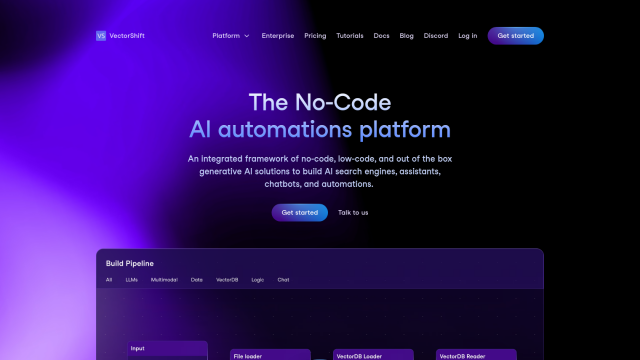
VectorShift
VectorShift is another option. It's a no-code platform that provides a single interface for building AI-powered applications like search and chatbots. It has a drag-and-drop interface, code SDK for API access and a marketplace with more than 60 pre-built pipelines for automating workflows. VectorShift integrates with tools like Google Drive and Salesforce, so it's a good option for a variety of business needs.

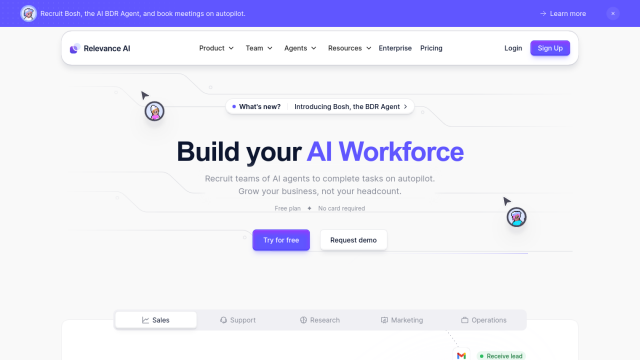
Relevance AI
Last, Relevance AI offers a no-code builder that uses LLM prompts to formalize processes so they can be run autonomously and automated business processes. It integrates with tools like Zapier and Snowflake and has strong security and compliance features. It's a good option for automating sales, support and content creation work, so if you want to improve operations without hiring more people, it's worth a look.

